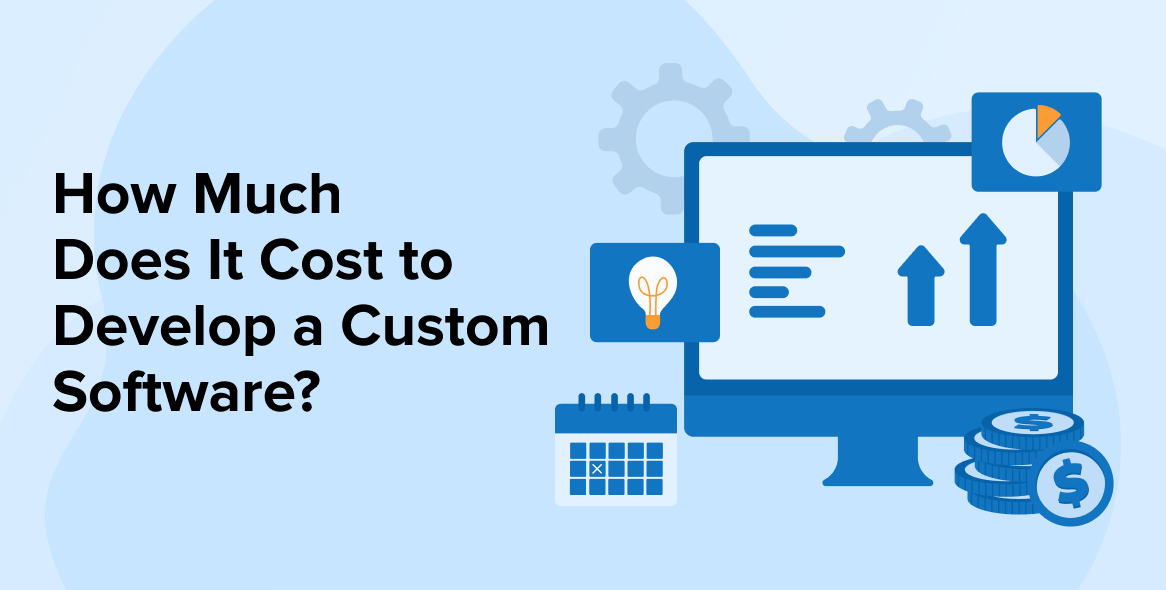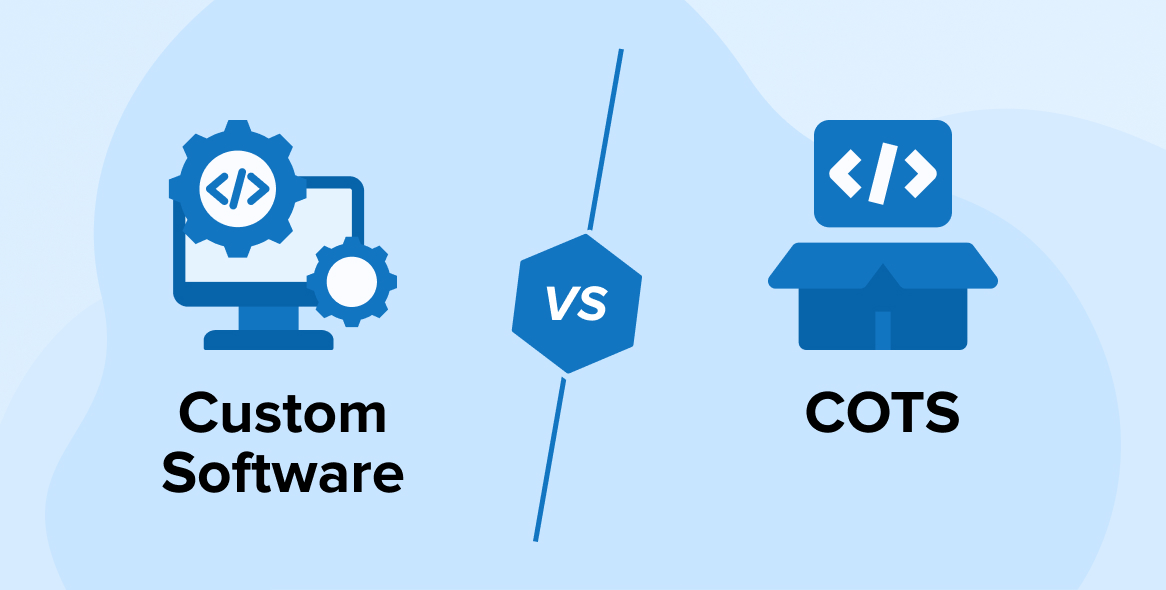
The process of Bespoke software development can be grueling at times because of the unexpected pitfalls and lack of transparency with the software development vendor. Also, if you want to hire a new third-party company, this could be even more challenging because of the options available. However competitive it gets, there are few aspects that must be considered always in order to choose the right company for your business.
The phases of choosing a suitable partner include an in-depth analysis of the company, its work, its portfolio, and its client companies. The last but extremely significant step here is to sign a Software development Agreement by including all the clauses that will help you sail smoothly through this deal. To make this a win-win situation, you must know what are the key aspects of a Software Development Agreement.
Keep reading this article to find all your answers to software development agreements and a brief overview on what are the types of software agreements, essential clauses to be included, and finally how software development contracts can work in your favor. So, let’s get going.
Starting with, bespoke software development there are majorly two types of software development contracts
- Software Agreement
- NDA: Non-Disclosure Agreement
1. What are Software Agreements?
In the custom software development industry, businesses are strongly dependent on software agreements or project development agreements. Such agreements are made between two parties involved, the software development service provider company, and the second one is the business seeking help in custom software development. This contract is confined to specific rules to provide supporting facilities such as assistance and maintenance during the project lifecycle. The process can be altered on the basis of the chosen technology and teams. This agreement contains details on confidentiality factors, promised scope of work, development team composition, and what details can be shared and what cannot.
As per the agreement of both parties, the software license agreement can be copied, modified, and redistributed to the relevant stakeholders. With no ambiguity, the prices of the software and the licensing fees must be mentioned elaborately. So that businesses can protect themselves from violating copyright laws by wisely drafting a software license agreement. There are numerous essential parameters that contribute to making the software agreement valid and reliable. While drafting a software agreement there are some essential parts and provisions that need to be taken into account. We have summoned a checklist of information that must be included while creating a Software agreement with a custom software development vendor.
2. Types of Software Development Contracts
In the process of software development, your first step is already done. You have understood what it means to craft a software development agreement. The next step is to understand which one to choose. If you know, there are alternatives available in software contracts. Here are three major types of software development contracts that you must know to understand why one will be competent for your business needs.

2.1 Time and Materials
This is the most typical sort of agreement used in development outsourcing. By signing such a contract, you agree to pay for the time your partner spends working on your project. This method goes as simple as multiplying the number of hours by the hourly rate.
However, there are a few things to consider before signing a time and materials contract. The sheer nature of such an agreement is that the strategy implies that you agree to pay more if the job takes longer than projected. Also, you have control over the development process, especially if your vendor employs the Agile technique for your business. With Agile, you will receive a demo of the completed features once every two weeks and will be able to estimate the remaining time rather accurately. We now have a good understanding of the concept that this method makes you pay for all the time invested and materials used. There are certain pros and cons of using the T and M contract for your business.
Pros of Time and Material based Model
- It is one of the most basic sorts of contracts and easy to understand as well.
- T&M contracts provide you with essential flexibility. You can change your objectives, and add or remove elements from your future digital product at any time during the process.
- You can obtain the desired results if you maintain constant communication with your vendor throughout the process.
Cons of Time and Material-based Model
- The changes in the priority of work and the inducement of new features can shift the budget and make it more extended. Due to this, you cannot predict the exact amount of the budget.
- You need to reschedule the deadlines and extend it.
- There is a constant need for effective results. So this will bring significant tangible and intangible efforts.
2.2 Fixed Bid
Fixed bid contracts are simple and quite easy to describe. It depends on the scope of work to be delivered and the fixed price to be paid. This sort of contract is best suited for engaging contractors for minor tasks. In the case of Fixed bids, they are fairly strict and prevalent on services offered. There is a fixed price to decide which customers for the activities they want to get done and the price they are willing to pay.
However, you can apply this strategy in your interactions with a development business as well. For example, you can sign a fixed bid contract with your vendor to accomplish test work. Typically, test activities necessitate the creation of a specific feature or component, making it relatively simple to plan and budget.
Pros of Fixed bid
- Here in this method, the biggest benefit is setting a predetermined budget gets simpler.
- Software development services provider is held accountable for budget overruns.
- All deadlines are rigorously adhered to or else it would result in improvement.
- Because all of the specifics are specified in the contract, there is no need for continual monitoring.
Cons of Fixed bid
- Since the requirements cannot be easily altered, there can be insufficiency and inflexibility.
- To stay within a budget, then the software engineers may have to opt for less expensive and less effective tools. This will make your product quality suffer as a result.
2.3 Fixed Budget
The last one in this is Fixed budget contracts which is a type of fixed bid contract. The project budget is also decided upon before the commencement of this model. However, the scope of the project can vary as development advances. The key idea for the developer is to keep within the agreed-upon budget and to be able to deliver the expected output.
The fixed budget model is not suitable for a significant project involving the creation of a specific product. However, when you have your hands tied in case of money, this strategy may be useful. The development firm will prioritize the scope such as the main elements, while some of the features which need more money may be left out until the next release or permanently.
Pros of Fixed budget
- If you have a low budget, then a fixed price is best-suited for you.
- The budgeting contract allows you to prioritize the necessary elements/functionalities of the product while deferring or abandoning the installation of other features indefinitely.
Cons of Fixed budget
- Fixed budget projects will not suit those kinds of projects where there is a chance of adding different functionalities in between development processes.
3. Key Clauses for a Software Agreement
When drafting a software agreement, it is crucial to include essential clauses that clearly define the rights and responsibilities of all parties involved.
3.1 Clearly State About the Services to be Provided
The first step asks you to clearly know what the third-party company is offering. The software development contract should outline the development services that you expect your partner to provide. Typically, this section of the contract relates to the specification that is an intrinsic element of it. The project scope should clearly state the specification in as much detail as possible to avoid disagreements.
The Services section you include will help you outline the mechanism for changing the scope in case of future. It is the best practice to indicate if any changes are recommended. You must take everything in writing to avoid any inconvenience or clashes in the future.
3.2 Project Time and Cost
The project timeline and cost are one of the first and foremost factors that should be considered when you decide to develop software. You should ideally have a clear picture of when you want to launch the software application. This will give a clear picture of the timeline and cost you need to put in this final product. Every phase included will add up to the time and cost involved in the project delivery lifecycle.
Make sure to include the stages of development, the money for each, and the time frame for each. Furthermore, always indicate the likelihood of setbacks like the delay in payments or cost as well as the stakeholders’ responsibilities for them. We recommend adding all these clauses to the contract (payment schedules and development schedules) and making both parties sign.
3.3 Terms of Confidentiality
Starting from business models, market strategies, production processes, trade secrets, know-how, patents, copyrights, financial information, sales distribution strategies, and internet and e-commerce strategies or any such information which may be written, electronic in nature will be referred to collectively in this agreement as “Confidential Information”. The privacy of information does not include technical data and essential information or manual custom software development by the custom software development company. The basic terms and conditions of confidentiality allow:
- The service provider to showcase his possession prior to the time of the disclosure by the disclosing party, or is currently, or becomes publicly known through no fault of the parties.
- In any case, if the information is leaked to a third party or source then the disclosing party is subjected to similar restrictions and breach of the agreement.
- For cases where there is a written authorization to release software.
- If information is available in the public domain, no claims on that data breach will be subjected to disclosing of information.
- The details that are required to be disclosed under the operation of law, by court order, or by governmental regulation, in such cases the receiving party has to provide prompt written notice to the disclosing party of such disclosure requirement.
3.4 Intellectual Property Rights
Considering intellectual property rights of projects in custom software development facilities, which can include trademark rights, trade secrets, topography rights, data extraction from database rights, the right to preserve source code, source code repositories, and other types of fair property rights having a common impact that can occur anywhere in the world. All the rights checked in the agreement will remain the property rights after the execution of the agreement too. If the supplier avails these rights, the custom software company can also include the actual name of the software, the distribution rights, and copyright. This is a vital inclusion for both the parties to have clarity on the rights that the product owner holds.
3.5 Limitation of Liability
The provision of this clause in an SLA (Service Level Agreement) specifies the amount and type of loss each party would face in various circumstances and be obliged to other businesses. It is essentially a liability to cover any inability to execute when the development needs are not met. This provision would concentrate on the fact that the licensee would accept the software as it is, will not be allowed to sue for damages for any modified software made, and also will not provide any protection for the damaged software during the use.
3.6 Non-Exclusive
Receiving party will get non-exclusive software rights for cases if in the future they want to sell software. This will allow them to make a profit by selling the license of the software to other parties.
3.7 Law and Arbitration
Businesses have started to include this arbitration clause in any contract created nowadays for software creation. Arbitration is usually an out-of-court proceeding in which a neutral third-party entity called an arbitrator considers the parties’ claims and testimony and makes a binding judgment. This is an alternative way of settling disputes by introducing an arbitration clause.
3.8 Penalty/ Breach of Contract
Including this clause in your agreement will allow the business to revoke the license in case the terms and conditions are not followed. In case you wish a breach of a legal document should not occur then take the control of the developed software and protect it.
3.9 Terms of Termination
In custom software development services, for the case where any of the parties wants to terminate the agreement, this clause will detail the actions they should have taken as per the licensee. Both parties can include their terms like no one can destroy the software on-site or uninstall it from the device. Including this will exemplify the conditions of termination or revoking the software without repercussions at any given time and for any given reason.
3.10 Employee Solicitation
This clause can be set into action if the recipient has significant access to the software developers of your company. This clause will force businesses to hire employees for at least 12-24 months. There can be times when the other party might not agree to this and in such cases, this clause can help clients limit their resources. For offshore service providers, this clause is extremely beneficial.
3.11 Special Disputes Cases and Authorities
For conflicts between the parties involved in the agreement, if the dispute reaches the court, it will be handled by the judiciary location mentioned in the agreement. If the supplier is located offshore then in such cases the judiciary will be a foreign judiciary for the client. Also, it is impossible to impose the agreement when in dispute if the client refuses to attend court.
For cases where the judiciary location is local then according to the agreement, the business has to pay a hefty amount in traveling offshore numerous times and high legal costs in hiring lawyers to seek legal help at the supplier’s location. Thus, it is always advisable to deal with offshore software development companies that have a registered office in your country. This will keep the judicial office in the same country and can be profitable for businesses in case of any dispute or chaotic business scenario.
3.12 Injunctive Relief
Add injunctive relief to your business to prevent business from any potential breaches or agreements. This clause states that if they want the disclosing party to not release considered confidential information then this can help the other party to obtain the court’s permission and impede them from breaching acts. For cases where the money is involved, injunctive relief is a slow move.
4. Final Thoughts
From this blog, we can now conclude that a software agreement can barricade all the potential disputes that may arise due to data breaches or leaking information during custom software development programs. This elaborate attempt to make businesses understand the severity of software agreements through our blog and at the same time keep the essential parameters in mind while initiating any contract will help businesses safeguard their confidential information in the long run.





This article perfectly explains why signing a software development contract is necessary. A well-executed development agreement will provide legal protection for both parties. In the worst case, you will be using this document to save you thousands in legal fees and lost time.
Software development agreements can help to build trust between both the parties. This article tried to explain everything which we need to include in this document, But I think discussion about payment should also be included in this document.